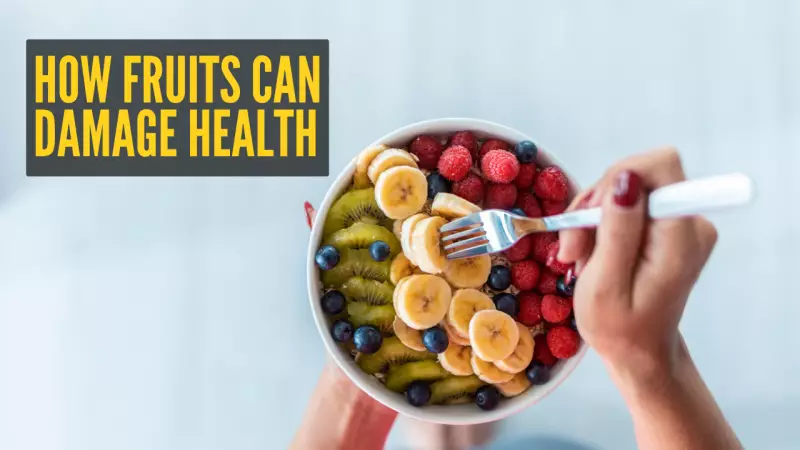
The Right Way to Eat Fruits for Optimal Health
Fruits represent a fundamental component of human nutrition, celebrated across both ancient Ayurvedic traditions and modern medical science. These natural powerhouses deliver essential vitamins, minerals, antioxidants, and dietary fiber that collectively boost energy, strengthen immune defenses, and enhance digestive efficiency while maintaining low calorie counts. Their rich antioxidant profiles combat inflammation and oxidative stress, significantly reducing risks associated with chronic conditions including diabetes, heart disease, and obesity.
However, wellness and nutrition specialist Dimple Jangda emphasizes through her recent Instagram reel that consuming fruits incorrectly can disrupt your digestive system. She identifies three prevalent errors that many people make and provides simple adjustments to prevent associated indigestion.
Mistake 1: Eating Fruits After Heavy Meals
Consuming fruits immediately following a substantial meal represents a significant digestive error. When you ingest foods after a heavy meal, your stomach acids concentrate on breaking down dense carbohydrates, proteins, and fats, causing food to remain in the stomach longer than necessary. This extended retention leads to increased acidity.
Jangda references a Penn University study demonstrating that eating fruits before meals enhances satiety and reduces subsequent calorie intake by 15-20%. This approach also helps regulate insulin production through the release of GLP-1 gut hormone, preventing sudden sugar spikes. The optimal approach involves consuming fruits one hour before meals or waiting two hours after meals.
Mistake 2: Consuming Fruits After Sunset
Fruits contain various acids including malic acid, ascorbic acid, citric acid, fumaric acid, and tartaric acid that have stimulating effects on the body. Apples, for instance, provide caffeine-equivalent waking effects, while these acids interfere with melatonin production essential for sleep initiation.
Since these components boost metabolism and energy production—processes ideally suited for daytime—the best consumption times are morning hours, either one hour before breakfast or two hours afterward. A second fruit portion can serve as a 4 PM snack, but should never be consumed after sunset.
Mistake 3: Mixing All Fruits in Salads
Combining various fruit types in salads might seem beneficial but actually damages gut lining, according to Jangda. Fruits fall into distinct categories: citrus varieties like lemons, oranges, and grapefruits; sweet types including bananas, avocados, and mangoes; and astringent kinds such as apples, pears, and berries.
When mixed together, these different fruit categories compete for digestive enzymes, resulting in nutrient malabsorption. This competition leads to delayed digestion, burping, bloating, flatulence, and acidity symptoms. Melons particularly disagree with other fruits and should be consumed separately as an individual meal.
Disclaimer: This information serves general educational purposes only and should not replace professional medical advice. Always consult healthcare providers before implementing new dietary routines.






